
Las fascinantes fotos de un buzo de la UNESCO del arrecife de coral del 'valle de las mil rosas'
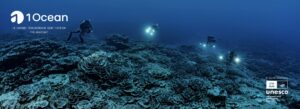
A principios de este año, una expedición de investigación apoyada por la UNESCO descubrió uno de los arrecifes de coral de aguas profundas más grandes del mundo, frente a la costa de Tahití.
Este tesoro submarino ha sido conocido durante mucho tiempo por los pescadores locales, pero su extensión era insospechada.
El arrecife se encuentra a profundidades de entre 30 y 65 metros. Tiene aproximadamente 3 km de largo y hasta 65 m de ancho, lo que lo convierte en uno de los arrecifes de coral sanos más extensos registrados. Los corales gigantes en forma de rosa tienen hasta dos metros de diámetro, lo que le valió el apodo de 'el valle de las mil rosas'.

El valle de las mil rosas es un raro arrecife profundo frente a la costa de Tahití.
Este hallazgo es muy inusual porque, hasta ahora, la gran mayoría de los arrecifes de coral conocidos en el mundo se encuentran a profundidades de hasta 25 m. Entonces, este descubrimiento sugiere que hay muchos arrecifes más grandes, a profundidades de más de 30 metros, en lo que se conoce como la "zona crepuscular" del océano.
Las imágenes del arrecife prístino se pueden ver a continuación:
El fotógrafo francés y fundador de la campaña 1 Ocean , Alexis Rosenfeld, dirigió la misión de buceo que descubrió esta prístina extensión de corales en forma de rosa.
Rosenfeld ha compartido más imágenes increíbles que ha tomado de arrecifes de todo el mundo, con la esperanza de crear conciencia pública sobre la necesidad de preservar el océano y proteger estos frágiles ecosistemas. Casi la mitad de los ecosistemas coralinos han desaparecido desde la década de 1870 debido al cambio climático, la sobrepesca y la contaminación. De los que han sobrevivido, un tercio están en peligro de extinción.
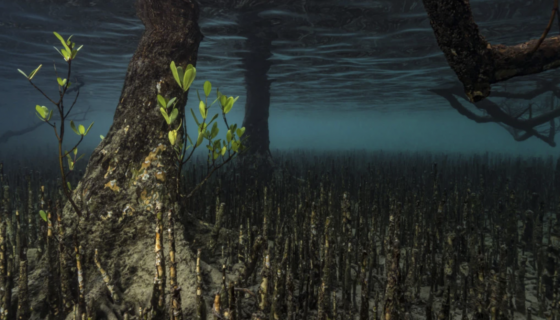
El Parque Nacional Marino de Mayotte en el Océano Índico. 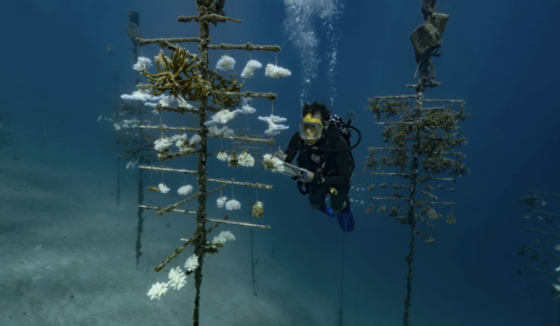 Arboles de coral desplegados frente a la costa de Moorea.
Arboles de coral desplegados frente a la costa de Moorea. 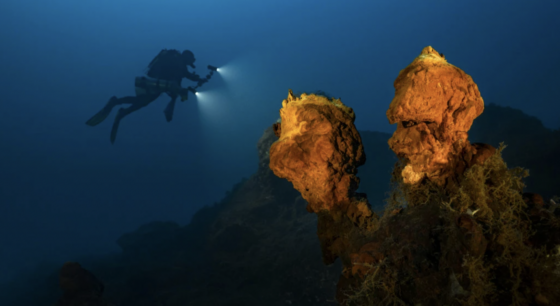 La zona submarina 'Tierra humeante' frente a las Islas Eolias en el Mediterráneo fue descubierta en 2018.
La zona submarina 'Tierra humeante' frente a las Islas Eolias en el Mediterráneo fue descubierta en 2018.
Hasta la fecha, solo se ha cartografiado el 20% del lecho marino. La UNESCO se ha comprometido a cartografiar al menos el 80 % del fondo del océano para 2030. La profundización de nuestro conocimiento del fondo del mar puede algún día revelar la existencia de otros ecosistemas, capaces de adaptarse al aumento de la temperatura del océano.
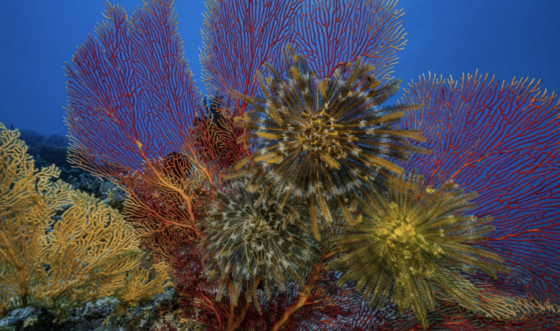
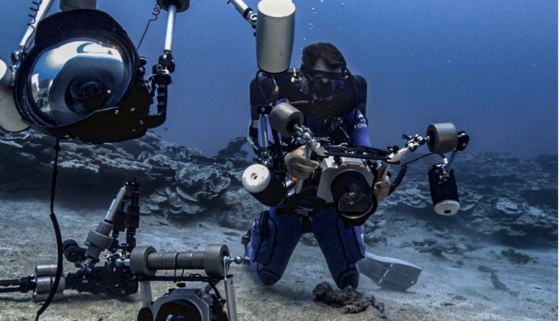
El explorador y fotógrafo francés Alexis Rosenfeld, fundador de la campaña 1 Ocean realizada en colaboración con la UNESCO para concienciar a la población sobre la necesidad de preservar el océano
El hábitat de los arrecifes de coral continúa siendo eliminado gracias al cambio climático y la actividad humana, y se prevé que la mayoría de los arrecifes de coral experimenten blanqueamiento de coral al menos dos veces por década para la década de 2030. Es una perspectiva sombría, pero, como dice Rosenfeld en la entrevista a continuación, todavía es posible ver el lado positivo.
“Cosas hermosas están sucediendo en la Tierra”, dice. “Cosas hermosas están sucediendo bajo el mar. Y tal vez, gracias a estas cosas hermosas, podamos convencer a la gente [para que lo proteja]”.
Todas las imágenes cortesía de Alexis Rosenfeld
